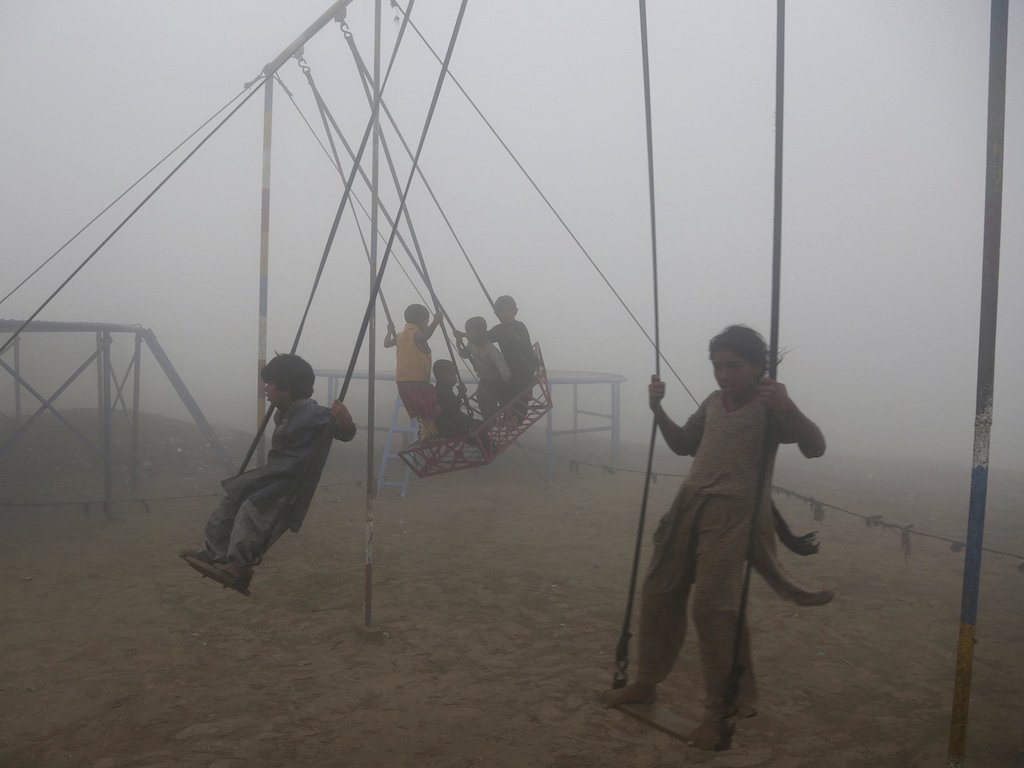Mass Migration ‘Will Become The Norm’ Without Urgent Action On Air Pollution & Climate, Experts Warn
3 Mins Read
After a landmark ruling by a French court this week that prevented a Bangaldeshi man from being deported due to the risk of severe health impacts from the dangerous levels of air pollution in his native country, experts are now warning that mass migration “will be become the norm” unless immediate action is taken to curb environmental degradation.
Following the French legal case, believed to be the first time that environmental risks have been applied in an extradition hearing, experts are calling on world leaders to take concerted action on air pollution and the climate in order to prevent a humanitarian crisis.
The appeals court in Bordeaux ruled to dismiss the expulsion order against the 40-year-old man from Bangladesh, after his lawyer argued that he faces “a worsening of his respiratory pathology due to air pollution” and possibly premature death as a result, in his country of origin.
The link between migration and environmental degradation is clear. As global warming makes parts of our planet uninhabitable, mass migration will become the norm.
Sailesh Mehta, Barrister, Red Lion Chambers
In 2020, Bangladesh was ranked 179th in the entire world for air quality, with levels of fine particulate matter measuring more than six times the recommended maximum under the World Health Organisation (WHO) guidelines.
“The link between migration and environmental degradation is clear. As global warming makes parts of our planet uninhabitable, mass migration will become the norm,” said Sailesh Mehta, a leading barrister at Red Lion Chambers.
“Air and water pollution do not respect national boundaries. We can stop a humanitarian and political crisis from becoming an existential one. But our leaders must act now.”
Mehta stressed that the issue of environmental degradation and poor air quality is not one confined to Bangladesh and is already affecting countries all over the world, citing the 200,000 annual deaths per year within the U.K. attributable to air pollution. Globally, one in four deaths is linked to air pollution, according to WHO data.
One of the primary sources of air pollution is the fossil fuel industry, which is also a leading emitter of greenhouse gases that fuels climate change. A Greenpeace report published last year found that fossil fuels alone account for 4.5 million deaths each year and economic losses amounting to US$8 billion every single day.
Cases such as this, where air quality or other pollution become a reason for preventing deportation, are certainly important steps forward.
Alex Randall, Coordinator, Climate & Migration Coalition
In the wake of the coronavirus pandemic, scientists have also established a link between air pollution and a significantly increased risk of fatalities from the disease, further underlining the urgent need for action.
Alex Randall, coordinator at the U.K. charity Climate & Migration Coalition, told the Guardian that this latest court case proves the need for governments to establish parameters for people to migrate due to climate risks and clear up the “legal grey area”.
“Cases such as this, where air quality or other pollution become a reason for preventing deportation, are certainly important steps forward. They may potentially lay the foundations for other future cases in which the impacts of climate change provide grounds for allowing people to stay,” said Randall.
In January 2019, a landmark ruling by the U.N. human rights committee said that it is unlawful for climate refugees to be returned home, where their lives and security are threatened by the impacts of ecological degradation. With climate impacts set to continue to worsen, researchers say that over one billion people face being displaced within the next 30 years.
Lead image courtesy of K.M. Chaudary / AP.




